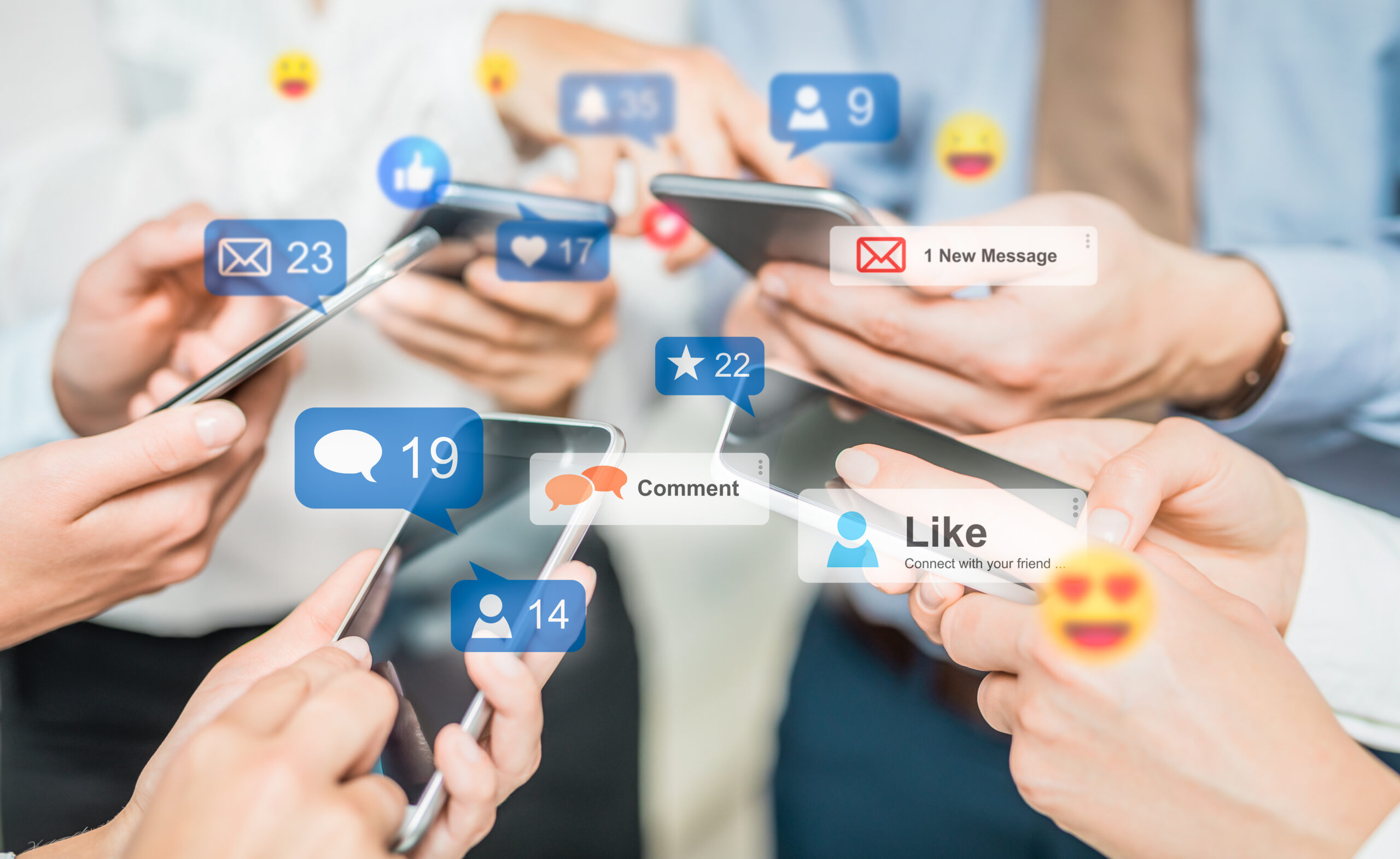Social media has become an integral part of our daily lives, connecting us to friends, family, and the world in ways we never imagined possible. It offers a window into the lives of others, fosters community, and provides a platform for expression. However, as the lines between our online and offline lives blur, the impact of social media on mental health has become a crucial topic of discussion. At Resilience Behavioral Health in Atlanta, we understand that navigating the complexities of mental health and social media requires a compassionate and informed approach. Let’s explore how social media can influence our mental well-being and what steps we can take to maintain a healthy balance.
The Double-Edged Sword: Benefits and Drawbacks
Social media has its undeniable benefits. It enables us to stay connected with loved ones, find support groups, and access valuable information and resources. For individuals experiencing isolation or loneliness, social media can offer a sense of community and belonging.
However, the same platforms that connect us can also contribute to feelings of inadequacy, anxiety, and depression. The constant barrage of curated images and highlight reels can create unrealistic expectations and foster negative self-comparisons. It’s essential to recognize both the positive and negative aspects of social media to manage its impact on our mental health effectively.
Comparisons and Self-Esteem: The Perils of Perfection
One of the most significant ways social media impacts mental health is through comparisons. When we scroll through our feeds, we are often exposed to the edited and often idealized versions of others’ lives. This can lead to feelings of inadequacy and lower self-esteem as we measure ourselves against these unrealistic standards.
Research has shown that these comparisons can be detrimental, especially for young people who are still developing their sense of identity. It’s crucial to remember that what we see on social media is only a fragment of reality, and that everyone, no matter how perfect their online presence may seem, faces their own challenges.
FOMO and Social Anxiety: The Fear of Missing Out
The Fear of Missing Out, or FOMO, is another common issue linked to social media use. Seeing friends or acquaintances engaging in activities and events can create a sense of exclusion and anxiety. This can lead to obsessive checking and a constant need to stay updated, which can further exacerbate feelings of stress and anxiety.
To counteract FOMO, it’s essential to cultivate a sense of gratitude and contentment with our own lives. Mindfulness practices, such as meditation and journaling, can help shift our focus from what we lack to what we have, fostering a sense of peace and well-being.
Sleep Disruption and Screen Time: The Physical Consequences
Prolonged use of social media, particularly before bed, can interfere with our sleep patterns. The blue light emitted by screens can disrupt our circadian rhythms, making it harder to fall asleep and stay asleep. Additionally, the stimulating content we consume can make it challenging to wind down and relax, further impacting our sleep quality.
Establishing healthy screen time habits is crucial for maintaining both our mental and physical health. Setting boundaries, such as turning off devices an hour before bed and designating screen-free zones, can help promote better sleep and overall well-being.
Cyberbullying and Online Harassment: The Dark Side of Connectivity
While social media can foster connections, it can also expose individuals to cyberbullying and online harassment. Negative comments, threats, and personal attacks can severely impact mental health, leading to feelings of fear, anxiety, and depression.
Creating a supportive online environment requires a collective effort. Reporting abusive behavior, standing up against cyberbullying, and offering support to those affected can help mitigate the harmful effects of online harassment. At Resilience Behavioral Health, we encourage individuals to seek help if they are experiencing cyberbullying, as professional support can provide valuable strategies for coping and recovery.
Strategies for Healthy Social Media Use
Understanding the impact of social media on mental health empowers us to take proactive steps to protect our well-being. Here are some strategies for maintaining a healthy relationship with social media:
- Set Boundaries: Designate specific times for social media use and stick to them. Consider implementing “digital detox” periods where you disconnect from social media entirely.
- Curate Your Feed: Follow accounts that inspire and uplift you, and unfollow or mute those that trigger negative emotions. Surrounding yourself with positive content can improve your overall experience.
- Engage Mindfully: Be intentional about your social media interactions. Focus on meaningful connections and authentic engagement rather than mindless scrolling.
- Practice Self-Care: Prioritize activities that promote your mental health, such as exercise, spending time in nature, and connecting with loved ones offline.
- Seek Support: If you’re struggling with the impact of social media on your mental health, don’t hesitate to reach out for professional help. Therapy and counseling can provide valuable tools and insights for managing your relationship with social media.
Finding Balance with Resilience Behavioral Health
At Resilience Behavioral Health in Atlanta, we understand the unique challenges posed by the intersection of mental health and social media. Our dedicated team of experts combines compassion, advanced technology, and personalized care to help you navigate these complexities with confidence and resilience.
If you or someone you know is grappling with the question of does too much social media impact mental health, we’re here to offer support and guidance. Our Atlanta-based mental health program is designed to provide a serene and supportive environment where you can explore and address your concerns.
Take the first step towards a healthier relationship with social media and better mental health. Contact Resilience Behavioral Health today to learn more about our comprehensive mental health programs. Together, we can build a foundation of resilience and well-being, paving the way for a brighter and more balanced future.
Reach out to us at Resilience Behavioral Health and start your journey towards healing and hope today.


